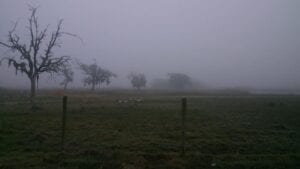Landscapes and Desolation
Chelsea Catherine
Blog 3: 11/19/2020
The word that’s been bouncing around in my head so much these days is “desolation.” Usually, when I use that word in fiction, I’m referring to a place. I’ll talk about a desert, a lonely island, some place where the landscape is barren and raw. In real life, I haven’t seen many places I would call desolate. I’ve been through deserts in southern Colorado and salt hills in Peru that felt barren, but not exactly desolate. While driving through North Dakota one summer, I didn’t see a single other building or living thing for almost two hundred miles.
Strangely enough, sometimes when I look out at downtown St. Petersburg, I feel a sense of desolation that I haven’t felt anywhere else. There is definitely a lot of beauty here – the skyline, the water, all the lakes and greenery between buildings. But sometimes it’s hard to live in a city like this, so far from mountains and open land.
That’s why I write so much about other places. One of my recent books, Blessed Be, is set on the southern Louisiana coast. The fictional town in the book, La Rue, is loosely based on the real-life town of Grand Chenier. Grand Chenier is where my mother’s family is from. While I spent most of my summers visiting them, we were always in northern Louisiana, which felt more palatable to me having grown up in Vermont.

Grand Chenier and the entire southern coast of the state is like another planet. It reminds me of the Dagobah planet in Star Wars, where Yoda trains Luke Skywalker to be a Jedi. Dagobah is swamp and creeping mist and burnt, emaciated trees. It is a place that is both desolate and full of life at the same time. The landscape in Dagobah reminds me so much of my mother’s property in Grand Chenier and how, on my last visit, I could barely see five feet in front of me because the fog was so thick.
Hurricane Laura destroyed much of Grand Chenier earlier this year. The historic house that’s been in our family for a hundred years was swept right off its pylons and carried away in the flood. It’s weird to think about now, being as far away as I am, and not having visited the area in four years. I did go to New Orleans last year for a bachelorette party, but it wasn’t the same. The city felt too concrete. Stale. I missed the swamps and gators and the thick Cajun accents. Rubber swamp boots and that smell of swamp grass and algae, all wild and untamed.
That’s what I miss most living here in the city, the wild and untamed side of nature. There is something about a city that feels all bundled up, like an electrical cord, tight and unrelenting. This pandemic feels like that, too. Everyone is stressed or irritated or scared. There’s an emotional desolation that feels especially painful right now. In a city, people’s emotions bounce off the buildings like radio waves. But in a place like Grand Chenier, the trees and swamps and overgrowth absorb some of that tension.
I am between novels right now, having just finished a draft of Lone Survivor, my survival novel set on an island. I have some ideas brimming for the next one, but I’m not sure about any details yet. I do know that it will be set somewhere wild. Some place I can sink into the cattails and lily pads to watch muskrats and nutria pick at weeds.
– Chelsea




